The Self-Weaving Tapestry
 Evolutionary geneticist Jerry A. Coyne's recently published Why Evolution Is True is a lucidly written enumeration of the mountain of scientific evidence that says Darwin was right: life, once it began on this planet, evolved on the 4.54-billion-year-old earth over the last (as we now know, but Darwin didn't) about 3.5 billion years.
Evolutionary geneticist Jerry A. Coyne's recently published Why Evolution Is True is a lucidly written enumeration of the mountain of scientific evidence that says Darwin was right: life, once it began on this planet, evolved on the 4.54-billion-year-old earth over the last (as we now know, but Darwin didn't) about 3.5 billion years.In that span, the first life forms — single-cell prokaryotes: bacteria — evolved into millions upon millions of multicellular species, the huge majority of them having debuted, strutted and fretted their hour upon the stage, and long since gone extinct.
Of this "tree of life" our species is one branch — or, better put, one twig.
Furthermore, the main engine of evolution is natural selection, which sifts the heritable variations that typically occurs in any population of living organisms and rewards those that most predispose their organisms to survive and reproduce.
Natural selection can accumulate the happenstance copying errors that occur quite frequently in the molecular basis for heredity, DNA, eliminating those that produce maladaptive traits while propagating those that make their bearers fitter to survive and reproduce. Under certain circumstances — typically very gradually — the accumulation of adaptive, fitness-promoting "mutations" (as we call changes in the sources of heritable variation today) produce a brand new species.
Darwin figured out the conceptual basis for evolution by natural selection in an age before we knew anything of genes and DNA, or how to use radioactive clocks to see how old the earth is. He first published his ideas, along with a flood of arguments and examples demonstrating their veracity, in 1859 in On the Origin of Species.
Though what we today call genetics and molecular biology were as yet a closed book to him, he knew about the ways living kinds distribute themselves around the world in clumps that reveal common descent, about the evidence of modern species' common ancestors in the fossil record, about how the traditional taxonomic classification of living forms mirrors evolutionary descent, and about the way breeders of animals and plants recapitulate natural selection with artificial selection.
Thus did he demonstrate that the suspicions of his scientific peers and predecessors were true: evolution happened. His major new contribution was the idea of natural selection, not the idea of evolution itself. Yet for decades after Origin appeared, natural selection was anything but an accepted doctrine. Many of Darwin's contemporaries and immediate heirs resisted the idea that such a blind, slow watchmaker as natural selection could possibly account for life's stunning diversity.
Whatever the degree of resistance to natural selection as a scientific idea, Darwin showed that it had to be at least one of the engines of evolutionary change — he allowed for other engines as possible co-contributors; evolutionists today typically focus mainly on selection — because natural selection couldn't be prevented from taking the vagaries of heritable variation in directions consistent with the ongoing adaptation of organisms to their (usually, perilous) environments.
Though Darwin himself raised the issue of selection's possibly not being strong enough to account for the origin of all species, he gave plenty of evidence that it might well be the evolution's taut mainspring ... for if selection alone doesn't account for every instance of speciation, if (as he showed) creationism doesn't explain anything at all, and if all of the other candidate mechanisms Darwin reviewed have today been discredited, then what are we left with?
True, most modern evolutionists say "genetic drift" — adaptively neutral traits that arise in populations of limited size for statistical reasons alone — powers some evolutionary change.
And a smattering of evolutionists would add "self-organization" as a further complement to natural selection: the ability of living systems, like "nonlinear dynamical systems" in general, to generate rapid and surprising increases in biological complexity by tuning themselves to an abstract regime called the "edge of chaos." Still, all evolutionists today would agree that unaided natural selection would be strong enough to power the origin of all species, in the absence of such putative aids and complements.
Even so, fully a century and a half after publication of Origin, we remain locked in a culture war over Darwin's two signal ideas, evolution and natural selection.
Today's anti-evolutionists call themselves, variously, "creationists," believers in "creation science," and proponents of "intelligent design." Increasingly, though, intelligent design's proponents disavow any religious motivation ... unlike their "Genesis creationism" and "creation science" predecessors. (My opinion: there are in the world approximately zero adherents of intelligent design who are indifferent to religion.)
Yet — and this is what I really would like to get at here — I do not think that the simplistic notion that all Darwinians are un-spiritual, or anti-spiritual, is necessarily so. Yes, some profess atheism, others agnosticism. Many label themselves "freethinkers," or "brights," or "secular humanists." And, yes, Darwinians are generally committed "materialists." But my take on that is this: There is nonetheless a kind of elevation of the spirit that their materialistic, atheistic, agnostic, freethinking bent can lend to life.
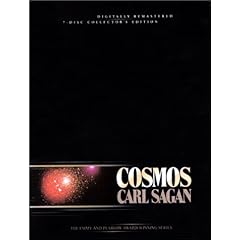 My own mental model for saying so is the late astronomer Carl Sagan, whose 1980 television series Cosmos still resonates with me; I have viewed it over and over again on videocassettes, DVDs, and even iTunes downloads.
My own mental model for saying so is the late astronomer Carl Sagan, whose 1980 television series Cosmos still resonates with me; I have viewed it over and over again on videocassettes, DVDs, and even iTunes downloads.Sagan distilled the scientific view of the universe into 13 one-hour episodes with titles like "Blues for a Red Planet" and "The Shores of the Cosmic Ocean." How, Sagan asked, did the universe begin and proceed to evolve galaxies, planets, and on one (or more) of the planets, life? Fascinating him as well was always this inquiring counterpoint to the same fugue: How did humankind's evolving penchant for "figuring it out" begin with the ancient Greeks and then evolve into modern science?
Sagan was at one and the same time a skeptic and a romantic. As a scientist, he was skeptical of those things, especially beliefs like astrology that have historically been dear to human hearts, that the scientific method cannot demonstrate the veracity of. Yet dear to his own heart was the charming notion that intelligent life exists elsewhere in our Milky Way, and that we can hope to pick up evidences of it in intercepted radio signals originating from great galactic parsecs away.
The cosmos as Carl Sagan presented it is a majestic tapestry, unimaginably huge, mostly empty, but here and there studded with complex, intricately woven outcroppings of natural law and cosmic order: our galaxy, our solar system, our planet, life on that planet.
Even more awesome is that it is a tapestry that weaves itself.
Carl Sagan described himself as an agnostic, not an atheist (see here). In a 1981 interview with U.S. Catholic, Sagan said: "I have some discomfort with both believers and with nonbelievers when their opinions are not based on facts ... If we don't know the answer, why are we under so much pressure to make up our minds, to declare our allegiance to one hypothesis or the other?"
In an interview with The Humanist magazine conducted after Sagan's death in 1997, his wife, Ann Druyan, said that neither she nor her husband believed in a traditional God or an afterlife.
True, the universe as a tapestry that weaves itself calls into question the traditional biblical God who makes us in his image and who greets us in heaven after we die.
 But never mind. The secular humanist Philip Kitcher writes in his defense of evolution theory, Living with Darwin, of "the genuine possibility of comfort without supernaturalist hope":
But never mind. The secular humanist Philip Kitcher writes in his defense of evolution theory, Living with Darwin, of "the genuine possibility of comfort without supernaturalist hope":"When the soprano soloist sings the movement Brahms added at the last moment to his German Requiem, "I will comfort you as one whom his mother comforteth" ("Ich will euch trösten, wie einen Mutter tröstet"), the promise is literally false — there is no God who will wipe the tears from our eyes — but the music itself consoles" (p. 158).
The music itself consoles. The tapestry self-weaves. Can this come to be enough, for us, to wipe away our tears at the loss of Genesis?






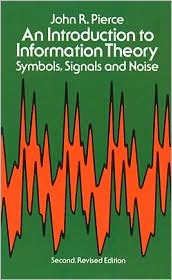

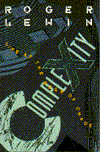

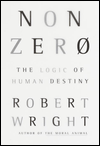

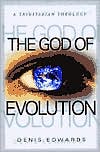

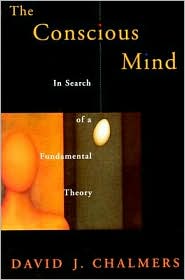
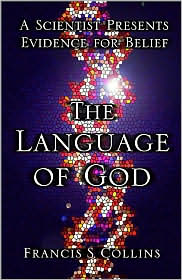


0 Comments:
Post a Comment
<< Home